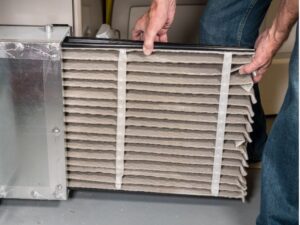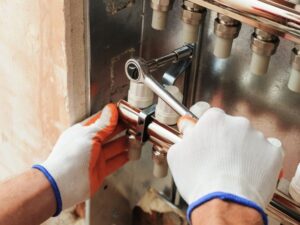Is Higher SEER Rating Better?
Climate control is a major energy user in any household, and that means a more efficient air conditioner, heat pump or furnace can save you a bundle. Every HVAC system comes with at least one efficiency rating, and it can be tough to keep up with the meaning of each one. At Ful-Bro Engineering, we’re here to help you understand those ratings so you can make informed decisions about your heating and cooling systems.
SEER, HSPF and AFUE
SEER, or seasonal energy efficiency ratio, is the key efficiency rating for air conditioners and air-source heat pumps. Manufacturers calculate SEER by dividing the cooling output in BTU for a typical cooling season by the energy used in watt-hours for the same season. The higher the SEER, the less electricity your air conditioner or heat pump needs to cool your home. All air conditioners produced today have SEER ratings of 14 and up, which is the minimum to earn an Energy Star rating. Ductless air conditioners and other high-efficiency systems can have SEER ratings of 20 or more.
Every air conditioner comes with a nominal SEER rating supplied by the manufacturer. Depending on your home’s layout, insulation and other factors, however, your actual SEER might be higher or lower. Still, when comparing air conditioners for use in the same home, the unit with a higher SEER rating will always be more efficient.
Two other efficiency ratings deserve mention here. Heating seasonal performance factor (HSPF) measures the heating cycle of an air-source heat pump. It’s calculated in the same way as SEER, but the numbers tend to be lower; an HSPF of eight is considered highly efficient. Furnaces and boilers instead use annual fuel utilization efficiency (AFUE), which is the percentage of fuel that is turned into usable heat. For example, an AFUE 90 furnace turns 90 percent of the fuel it burns into heat for your home; the remaining 10 percent is lost heat in the exhaust.
At Ful-Bro Heating & Air Conditioning, we’re here to help you find the right climate control systems for your home. Give us a call at 678-369-0500 to learn more.
You May Also Like

Can I Fix My Furnace in Tucker, GA, to Save Money?
Can tackling furnace repairs yourself actually save money, or will DIY efforts leave you out in the cold with an even bigger… Continue Reading Can I Fix My Furnace in Tucker, GA, to Save Money?…

It’s Not Too Late to Schedule a Furnace Tuneup in Chamblee, GA
The frost creeps across windowpanes as Chamblee, GA, residents reach for their thermostats, expecting instant warmth. Yet many homeowners discover their furnaces… Continue Reading It’s Not Too Late to Schedule a Furnace Tuneup in Chamblee, GA…

Need a Heat Pump Repair in Dunwoody, GA, Before Winter?
Your heat pump is critical to keeping your house comfortable. But if your system hasn’t been inspected or repaired lately, you might… Continue Reading Need a Heat Pump Repair in Dunwoody, GA, Before Winter?…


